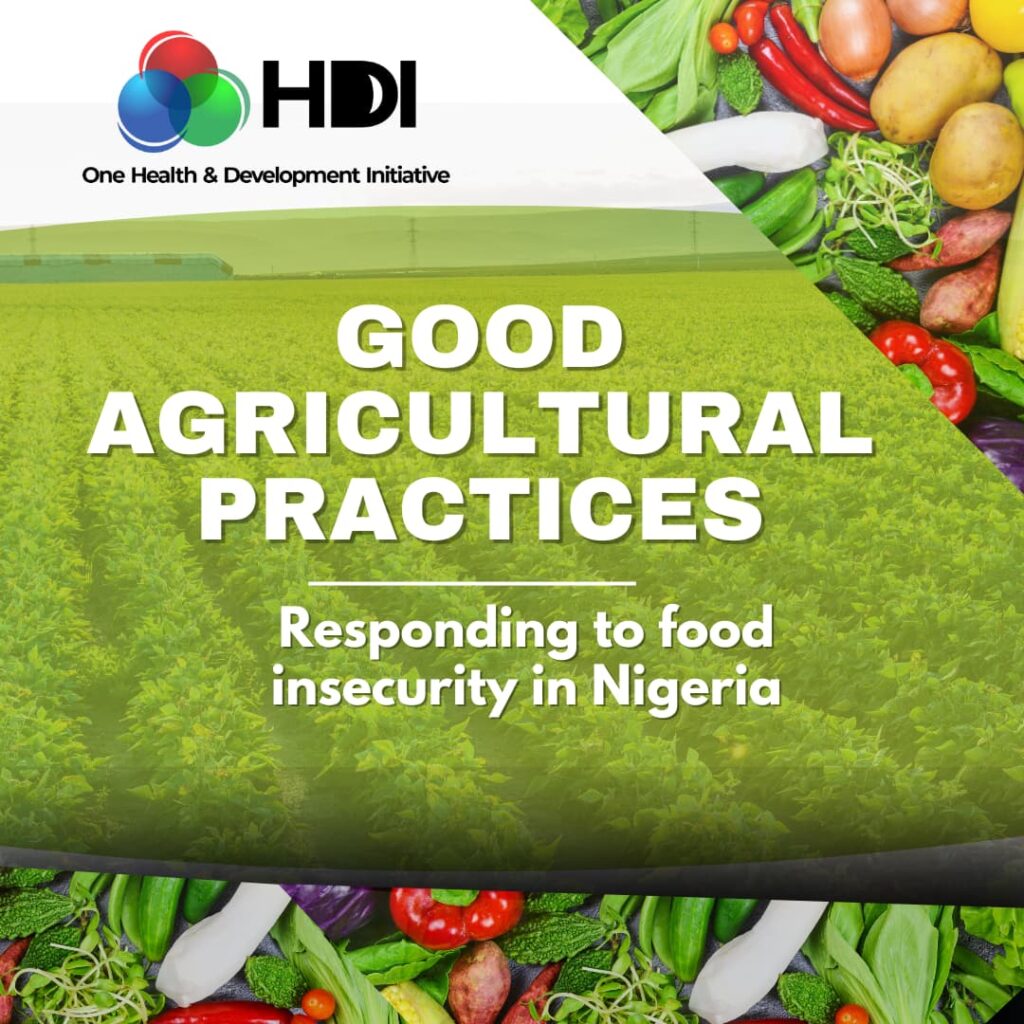
Food requirement in Nigeria
Try estimating the amount of food each of the 225.6 million (as of 01/11/2023) Nigerians would require to satisfy the three (3) meals per-day as an indication of food security. It would take a robust agricultural system premised on Good Agricultural Practices capable of availing huge agricultural yields so that the 225.5 million people are food secure. The question of whether food produced in Nigeria is sufficient for its population would be best tackled by the kind of agricultural practices and methods applied.
In many developing countries, an upsurge in poor agricultural practices and methods used in crop production has caused soil exhaustion, hurt soil microorganisms, and affected chances for recurrent thriving of plants. This has negatively impacted the sustainable use of land, thus low production of food in such countries, including Nigeria.
However, there are a few best practices which enable sustainable production of food that could be benchmarked from some other countries on the African continent. These best practices are known as Good Agricultural Practices (GAP). Some of these practices have been highlighted to be low among farmers, and heightening their application in Nigeria further could improve on the consumable food available to the Nigerian populace.
Good Agricultural Practices
The Food and Agriculture Organisation (FAO) considers Good Agricultural Practices as those practices that enable sustainable production and post-production of food. Good Agricultural Practices could be crucial in addressing food security & food safety in Nigeria as they play a key role in improving the quality and quantity of food produced. GAPs involve using sustainable methods to increase crop yields, reduce post-harvest losses, and improve food safety. These include crop rotation, conservation agriculture, integrated pest management, and post-harvest handling.
Crop rotation is crucial in improving food security. It involves growing different crops on the same land over a period of time. This practice enables the soil to remain fertile, prevent soil erosion, and reduce pest and disease infestations. Like in Ethiopia, farmers are adopting crop rotation practices, including the intercropping of cereals and legumes, to increase yields and improve soil health. This could be a practice further adopted to the Nigerian context to address the sustainable food needs of the Nigerian population.
Conservation agriculture has proven benefits that qualify as those that could improve food security in Nigeria. The practice of conservation agriculture is characterized by lessening soil disturbance, maintaining soil cover, and rotating crops to improve soil health and reduce erosion. Conservation agricultural practices could be promoted in Nigeria by encouraging minimum tillage, crop rotation, and the use of organic fertilizers to improve chances of sustainable food security.
Food security in Nigeria could also be achieved also through the Integrated Pest Management (IPM). IPM applications involve application of a combination of biological, cultural, and chemical methods to control pests and diseases. This approach helps to reduce the use of harmful pesticides and protect the environment. IPM could be improved in Nigeria through intercropping, and the use of bio pesticides, to reduce crop losses and ultimately achieve improved food security.
Post-harvest management shouldn’t be underestimated in bringing about desired food security levels in Nigeria in the short and long term. This practice has been effective in Kenya in addressing food security challenges, so it could as well be heightened in Nigeria. Post-harvest losses, including spoilage and waste, can significantly reduce the amount of food available for consumption. Good post-harvest management practices, such as proper storage, drying, and processing, can help to reduce these losses. In Kenya’s case, farmers use solar dryers to preserve fruits and vegetables, reducing post-harvest losses and increasing food security.
Conclusion
It remains important that Nigeria advances the application of the Good Agricultural Practices to greater heights as it seeks to respond to the growing food needs of its population now, and in the future. Good Agricultural Practices help to improve soil health, reduce pest and disease infestations, and minimize post-harvest losses. All these benefits lead to increased yields and improved food quality -which is safe & enough for consumption by people in Nigeria.





